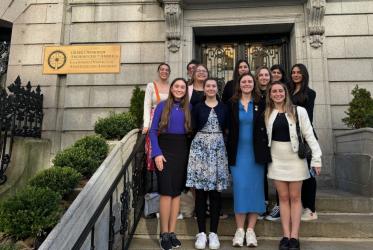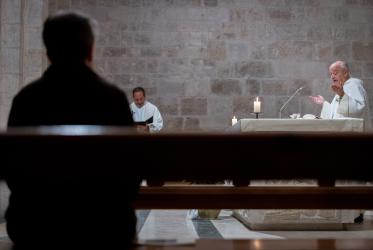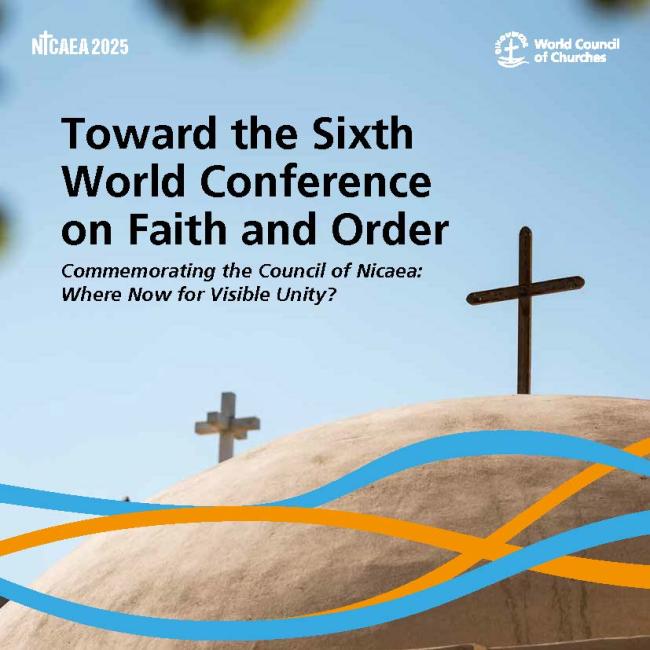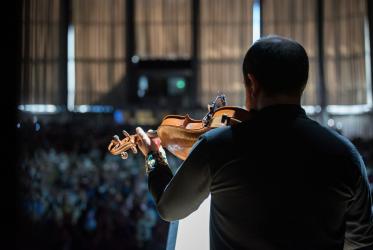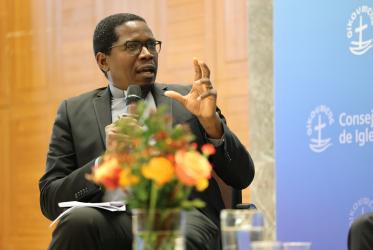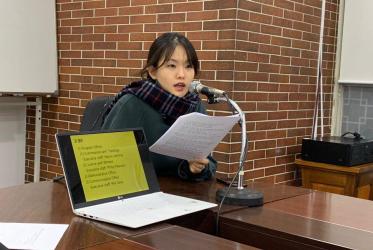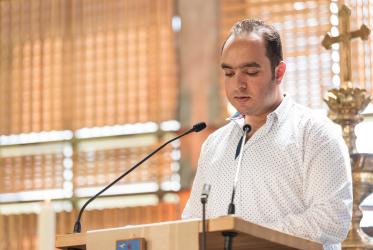Displaying 21 - 40 of 685
Welcome to the Ecumenical Centre
24 February 2024
Toward the Sixth World Conference on Faith and Order
Commemorating the Council of Nicaea: Where Now for Visible Unity?
24 February 2024
“Circle of Prayer” reverberates out from Dover—to the world
21 February 2024
Swedish Mission Council hears WCC reflections on faith in democracy
07 February 2024
Award-winning work means interactive storytelling with inclusivity
06 February 2024
Faith, prayer, and neighborly Love: Eri Yoon's journey
06 February 2024
As femicide cases rises, Kenyan religious leaders move to act
06 February 2024
Thirsting for peace: Gaza's water woes in the midst of war
31 January 2024
